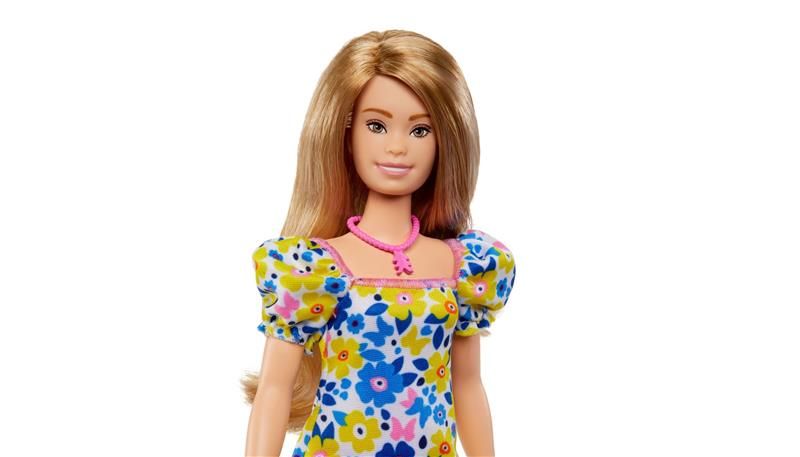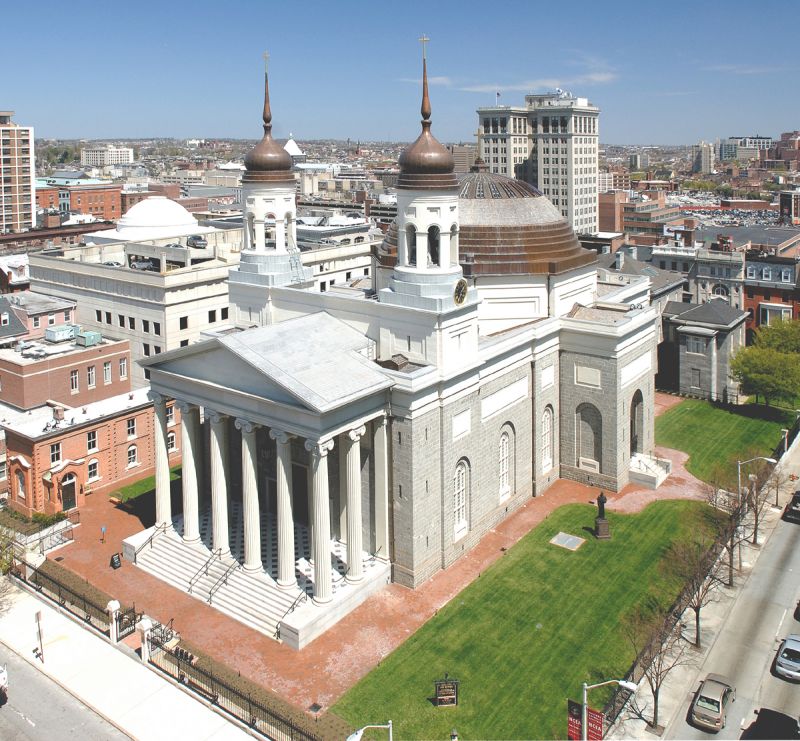
Newest Barbie doll is ‘monumental,’ Down syndrome advocate says
 Mattel’s newest Barbie doll / Photo courtesy of Mattel
Mattel’s newest Barbie doll / Photo courtesy of Mattel
Denver Newsroom, May 14, 2023 / 07:00 am (CNA).
Many little girls grow up playing with Barbie dolls and wishing that a doll would look just like them. Now, little girls with Down syndrome can live this dream. The American toy company Mattel announced April 25 that the first Barbie with Down syndrome would soon be hitting the shelves.
The first Barbie doll was released on March 9, 1959. Over the years, Mattel has released several kinds of Barbies representing different shapes, sizes, races, and ethnicities. In 1980, Mattel released the first Black and Hispanic dolls named Barbie. In 2015, three new body types were introduced: curvy, petite, and tall. And in 2022, the first Indian Barbie was manufactured. Currently, Barbie features 35 skin tones, 97 hairstyles, and nine body types.
Now Mattel is making headlines with their newest Barbie, who represents someone with Down syndrome, and it has already sold out online.
To ensure an accurate representation, Barbie worked with the National Down Syndrome Society (NDSS), a group that empowers those with Down syndrome by working to create policy change, provide resources, and engage with local communities.
According to a press release from Mattel, the new doll features a new face and body sculpt to more accurately represent a woman with Down syndrome. The doll’s yellow- and blue-colored dress is patterned with butterflies, symbols, and colors associated with Down syndrome awareness. The doll also wears a pink pendant necklace with three upward chevrons, representing the three copies of the 21st chromosome. Additionally, this new Barbie is wearing pink ankle foot orthotics (AFOs), as some children with Down syndrome wear AFOs to support their feet and ankles.
“As the most diverse doll line on the market, Barbie plays an important role in a child’s early experiences, and we are dedicated to doing our part to counter social stigma through play,” said Lisa McKnight, executive vice president and global head of Barbie and Dolls, Mattel, in the press release.
“Our goal is to enable all children to see themselves in Barbie while also encouraging children to play with dolls who do not look like themselves,” she said. “Doll play outside of a child’s own lived experience can teach understanding and build a greater sense of empathy, leading to a more accepting world.”
Erin Thielman, a Down syndrome advocate and mother of three, said she’s grateful for the new doll because her youngest son, Andrew, has Down syndrome.
“So many people support those with Down syndrome, yet there is a lack of representation for our wonderful community with regards to dolls and toys,” she said in an interview with CNA. “I found out about the new doll from social media. I follow many teenagers and adults with Down syndrome. It warmed my heart so much to see them so happy and excited.”
Thielman added: “A doll that represents girls with Down syndrome is monumental. It helps to inspire not only representation but also, it inspires confidence. With these dolls, girls with Down syndrome can hold their heads even higher knowing that they are special.”
Thielman’s 10-year-old daughter, Abby, was also thrilled to see the new Barbie. When Abby was 8 years old she reached out to Mattel asking them to make a doll with Down syndrome. They responded quickly saying they loved the idea and would pass it along. When Abby saw this new doll, tears of joy filled her eyes.
“I feel happy about the new doll because it embraces the beauty and amazing-ness in people who are unique, especially children with Down syndrome,” Abby said in an interview with Pro-Life Update. “You should never think of a disability as a disability; you should think of it as a different ability.”
In the United States nearly 70% of babies diagnosed with Down syndrome in the womb are aborted. When Thielman received the prenatal diagnosis for Andrew, abortion was suggested.
“Unfortunately, too many babies who are diagnosed prenatally with Down syndrome aren’t given the same chance as Andrew. And it breaks my heart,” Thielman expressed.
She is hopeful this new doll will bring light to this sad reality and show how children with Down syndrome are “intentional blessings from God.”
“Perhaps a Ken doll with Down syndrome? Barbie needs a friend!” she added.
You can find resources to help those raising a child with Down syndrome here.


